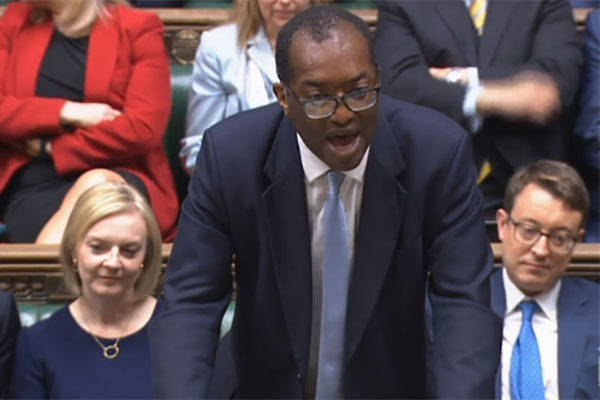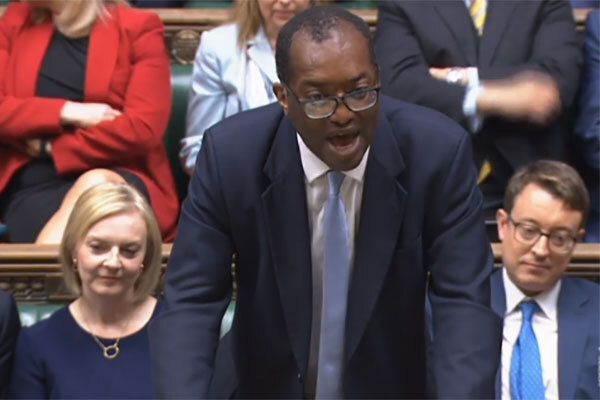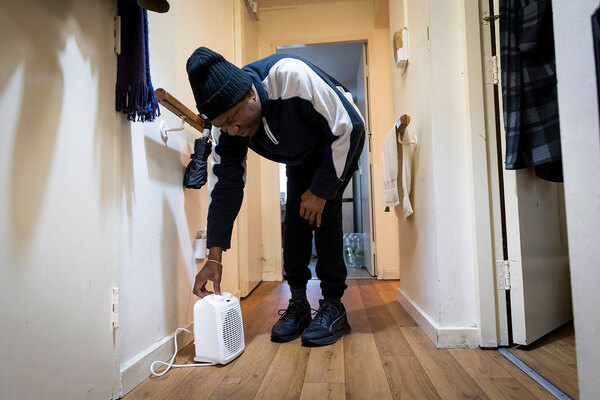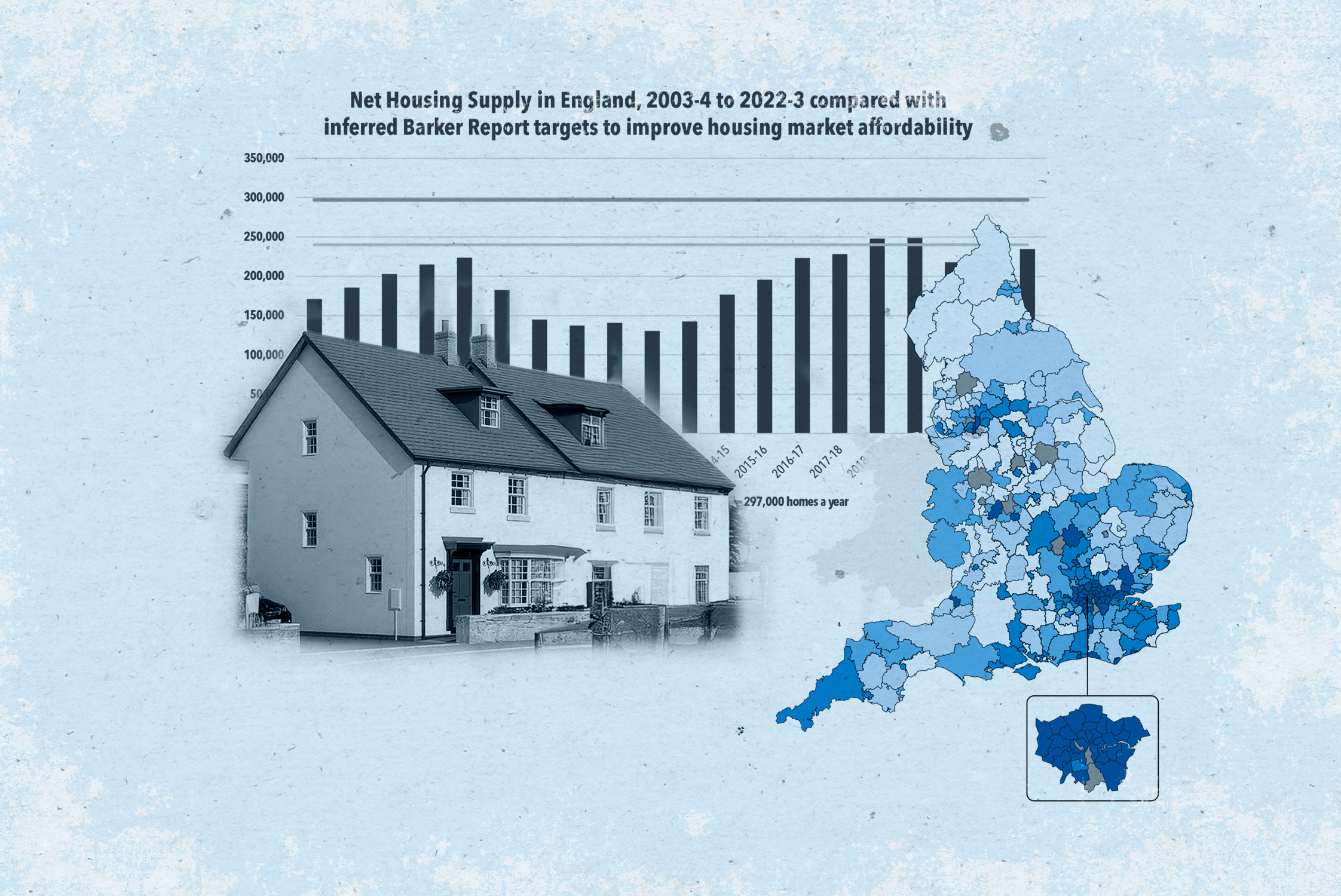You are viewing 1 of your 1 free articles

Rachael Williamson is head of policy and external affairs at the Chartered Institute of Housing
What was missing from the Mini Budget
The Mini Budget did nothing for people on low incomes. Rachael Williamson at the Chartered Institute of Housing sets out the dire picture facing households this winter, and what the government should be doing to intervene
I watched last Friday’s ‘Growth Plan’ announcement with an increasing sense of foreboding. I’m no economist, but it feels like a huge gamble to be funding tax cuts by borrowing money that we don’t have – and it looks like the markets agree. But what really shocked me was that there was nothing in the Mini Budget to provide hope or relief for the low-income families enduring the worst of the cost of living crisis.
“The start of the chancellor’s ‘new era’ will see nearly seven million UK households left facing desperate fuel poverty this winter”
Tax and National Insurance cuts don’t do much to benefit those on the lowest incomes. The National Insurance cut, for example, doesn’t help anyone who earns less than £242 per week. For someone on national minimum wage working 35 hours, it’s worth just £1.13, and even less for those on Universal Credit – just 51p a week.
Earlier this month, the Joseph Rowntree Foundation published its minimum income standard for 2022. It provides a benchmark for the minimum income a household needs to achieve a basic standard of living. It shows how inadequate basic benefit rates now are.
To illustrate, assuming a person on Universal Credit pays their full rent out of their housing costs element (a big assumption as high rents mean the benefit element is often not enough to cover it), their basic allowance for living expenses is at least £215 per week below the Minimum Income Standard for all household types. It’s £386 per week less for couples without children – £50 less than the gross earnings for full-time work at the minimum wage.
These calculations assume that renters on Universal Credit will use this money to pay the rent – for those with prepayment energy meters that’s a big if. Even with the measures pledged by the government so far, there is now just a week to go until energy bills increase by an average 64% from their 2020 levels. Bear in mind the Universal Credit standard allowance for a single person aged 25 or over is just £4,019 per year. This is meant to cover all other living expenses – not just fuel. The start of the chancellor’s ‘new era’ will see nearly seven million UK households left facing desperate fuel poverty this winter.
The Chartered Institute of Housing, like many others, has been calling on government to address the benefits shortfall (even before the recent spike in inflation, basic benefits were worth 11% less than a decade ago – equivalent to a benefit cut of £1,800 for a family with two children). We had hoped that the chancellor would announce that the planned benefits uprating would be brought forward from next April to this October. But he failed to even confirm whether benefits will be uprated in April in line with the Consumer Price Index (CPI) for this month.
In August, CPI was 9.9% – so anything less will be a real-term cut (in April, benefits were uprated by 3.1% – based on September 2021, but in every month since, inflation has been higher and has been at least double that in every month since January).
It was this time last year that those on Universal Credit lost the temporary £20 uplift which was introduced in response to the pandemic – before the spike in inflation started. It was needed then because basic benefit rates had fallen in real terms in six out of the seven years prior to the pandemic, due to rates being frozen and below-inflation increases. It’s needed now even more.
And let’s not forget that private renters lose out even further due to the Local Housing Allowance (LHA) rates which have been frozen since April 2020. Any shortfall will have to be made up out of already inadequate benefit rates. It’s therefore ironic that the only slight relief came not from the chancellor, but from the courts which said the policy of applying third-party deductions to legacy benefits for rent and fuel debts without asking claimants if they can manage is unlawful.
We are facing an unprecedented cost of living crisis – the sharp edge of which is seen in rising homelessness. There’s no denying the recently announced energy price guarantee will help lessen its impact, but thousands of households will still be in fuel poverty. Benefits need to rise so that those on the lowest incomes can cope. We summarised the changes needed in our recent letter to the prime minister:
- Bring forward the planned uprating of benefits from next April to this October
- Limit deductions from Universal Credit for prior overpayments/sanctions
- Remove the benefit cap and two-child limit
- Restore LHA rates to at least the 30th percentile and return to annual uprating
Rather than introducing any of these changes, we saw Friday’s announcement focus on cutting benefits, with a change to thresholds. Many of the part-time workers that will be “cracked down on” are unable to work more, such as parents and unpaid carers, and the changes outlined will only make life harder for them.
Let’s hope November’s official Budget puts this right, but current soundings don’t bode well. With interest rates rising and the pound falling to its lowest rate, whether you rent or own (or are in a combination of the two), support is needed – and it should be targeted at those who need it most. With more than one in five people already living in relative poverty in the UK (according to the Joseph Rowntree Foundation), the government must proceed with caution before the main growth created by its economic policy is in the number of people who can’t afford to live.
Rachael Williamson, head of policy and external affairs, Chartered Institute of Housing
Sign up for our daily newsletter
Already have an account? Click here to manage your newsletters












